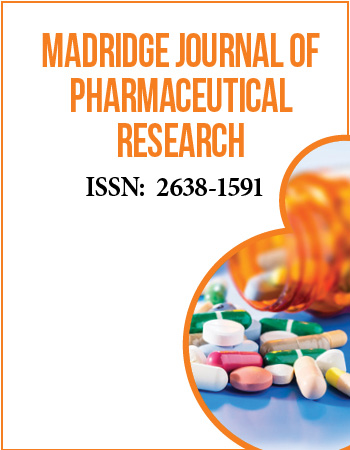2nd International Conference on Pharma & Nutrition, Health and Aging
August 1-2, 2019 Valencia, Spain
Influence of Cyanobacteria Spirulina on Growth of Gut Microbiota
1Dairy Research Institute, Czech Republic
2University of Chemistry and Technology, Czech Republic
3Institute of Chemical Process Fundamentals of the Czech Academy of Sciences, Czech Republic
Algae and cyanobacteria are nowadays of great potential, especially for the food industry, where they are used as a food additive. Thanks to their nutritional value and beneficial effects on health, the genus Chlorella (microalgae) and the genus Spirulina (cyanobacteria) are commonly used as food supplements. Microalgae and Cyanobacteria represent a rich source of nutritionally valuable substances, including proteins, vitamins, pigments, antioxidants, unsaturated fatty acids and last but not least, oligo- and poly-saccharides, which can serve as an energy source for gut bacteria and thus serve as prebiotics. The aim of the study was to test the prebiotic effect of Spirulina biomass on bacteria from the genera Lactobacillus (5 strains) and Bifidobacterium (3 strains). The experiment was performed with both the commercially available Spirulina biomass and the laboratory-cultivated Spirulina. A positive prebiotic effect of laboratory-cultivated Spirulina was observed in two lactobacilli strains, in Lbc. animalis CCDM 382 and Lbc. acidophilus CCDM 151. In the rest of the strains tested, the prebiotic effect was not significant but there was no growth inhibition either. In the case of commercially available Spirulina, a positive prebiotic effect was observed in all strains tested (8), wherein, the growth of bacteria increased with the rising concentration of the biomass. Based on the results obtained, Spirulina can act as prebiotic by increasing the number of probiotic bacteria, while this ability is strain and substrate specific. It has been shown that there are differences in the prebiotic effect between the laboratory-cultivated and commercially available Spirulina. It can be assumed that the form and method of processing the biomass will play a role, the differences may also be due to different cultivation conditions and subsequent processing, particularly in the cell disintegration stage.
Biography:
Gabriela Krausová (born Kunová), graduated in 2006 at University of Veterinary Medicine in Košice, Slovakia, in 2014 finished her doctoral studies at the Czech University of Life Sciences in Prague, Czech Republic. Since 2008 she works at Dairy Research Institute in Prague as a researcher and since 2014 as the head of Department of Microbiology and Technology. She is the author or co-author of 11 papers indexed in the Web of Science database, 20 articles in reviewed journals, 2 certified methodologies, 1 patent and 10 utility models. Her topics of interest are food microbiology, functional foods, probiotics, prebiotics, food hygiene etc.


